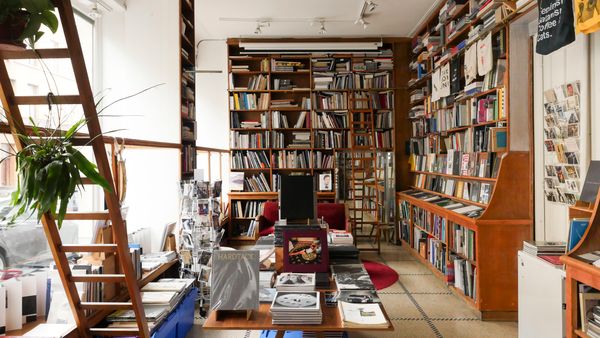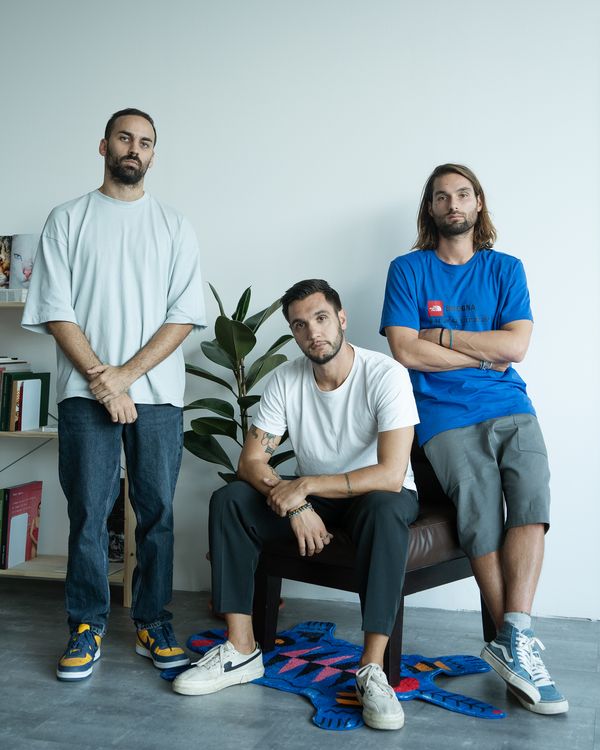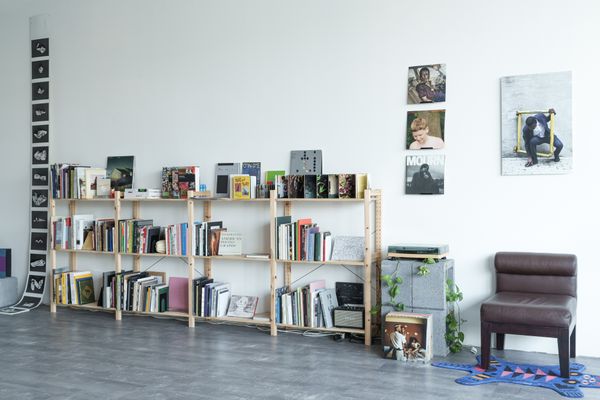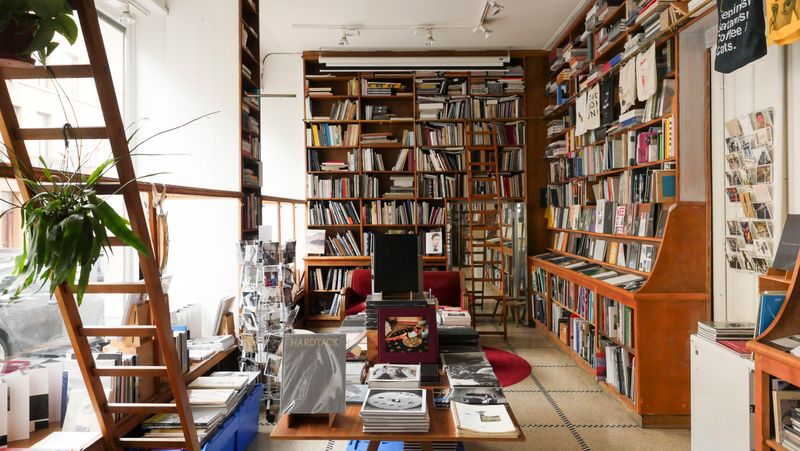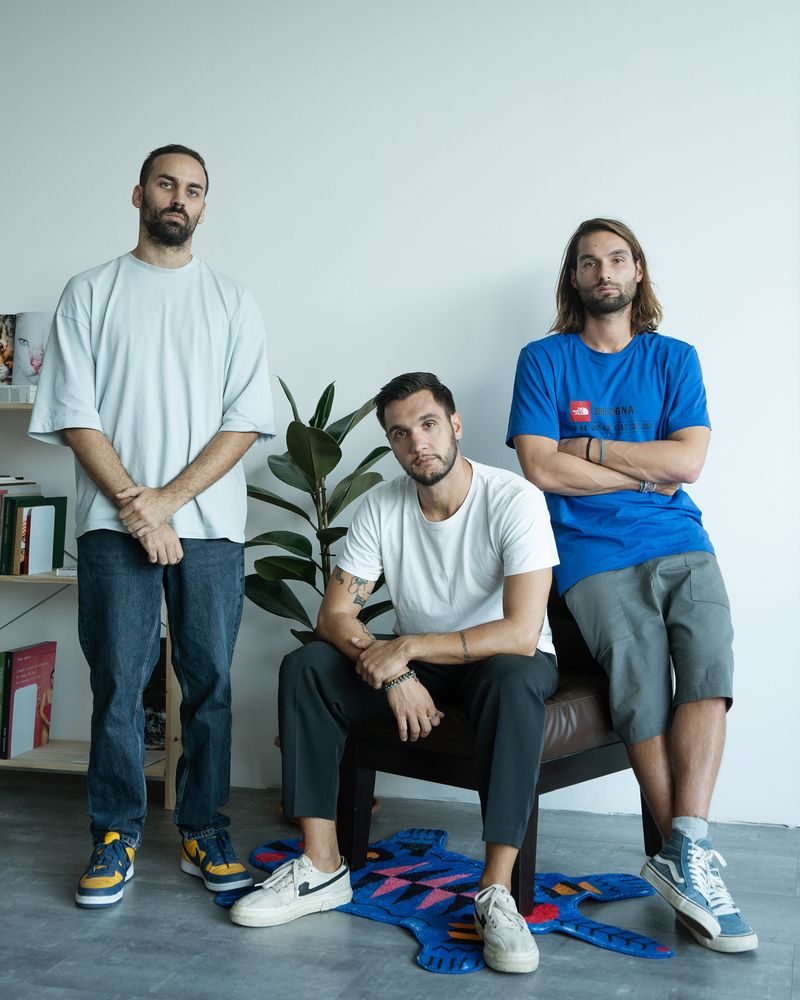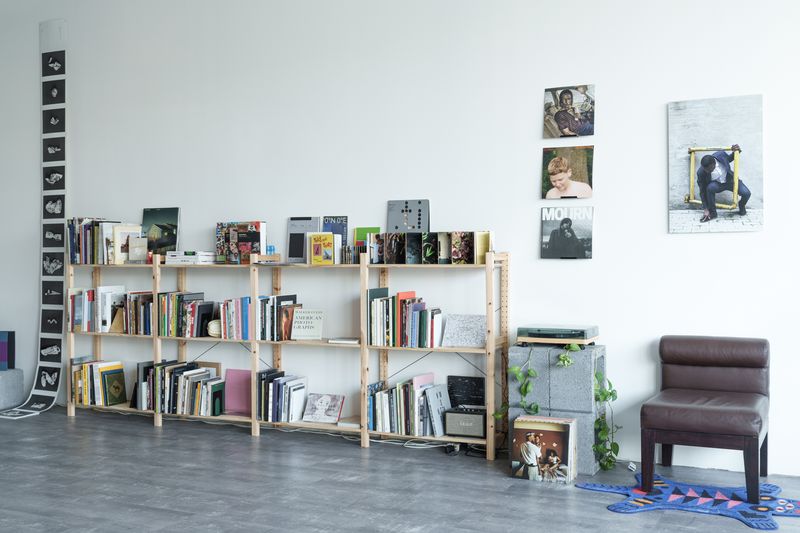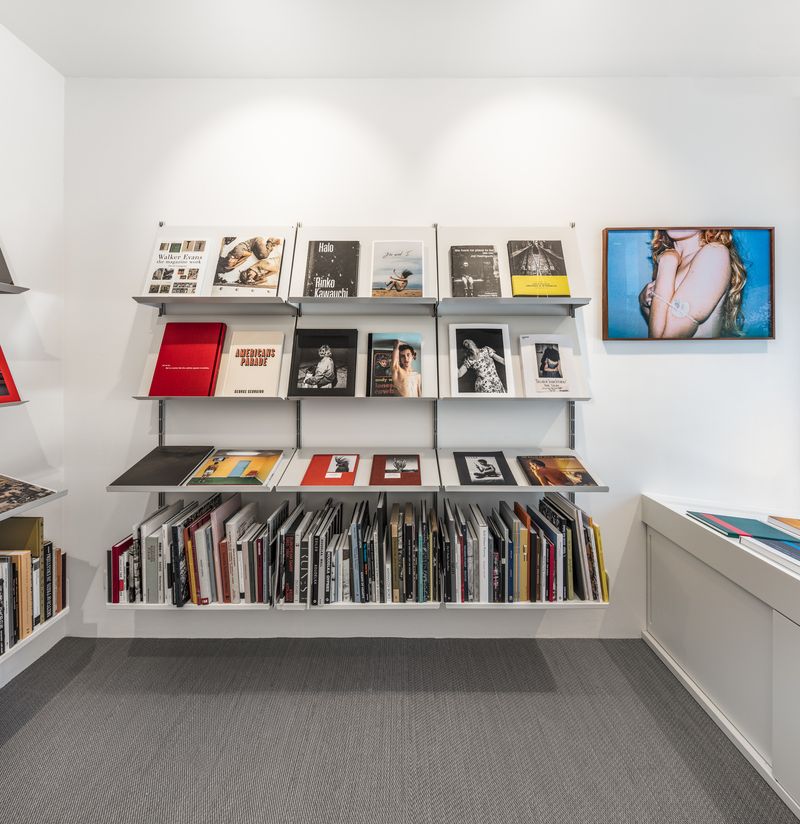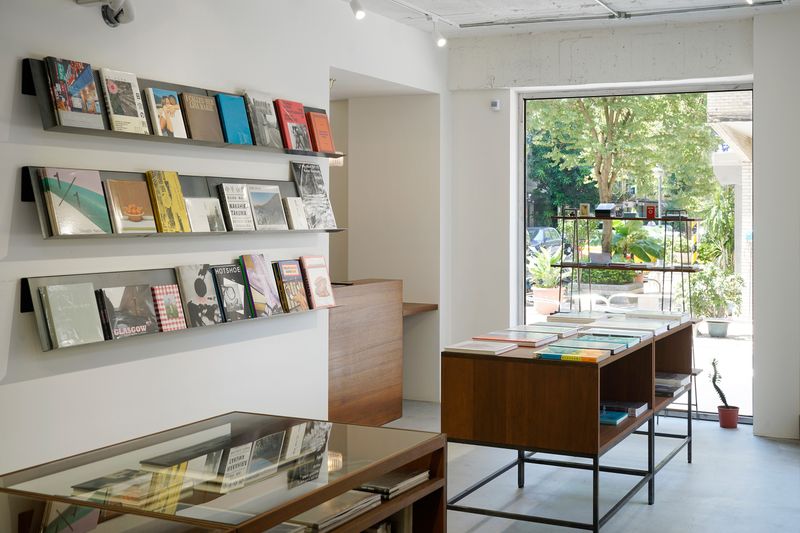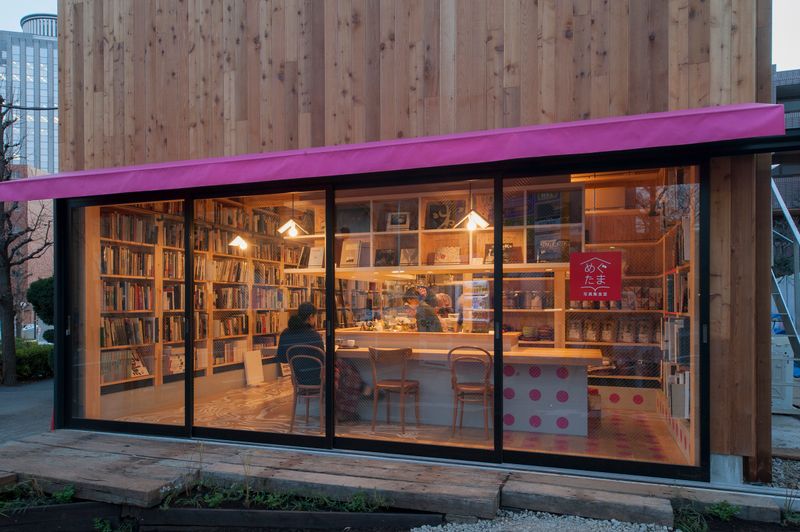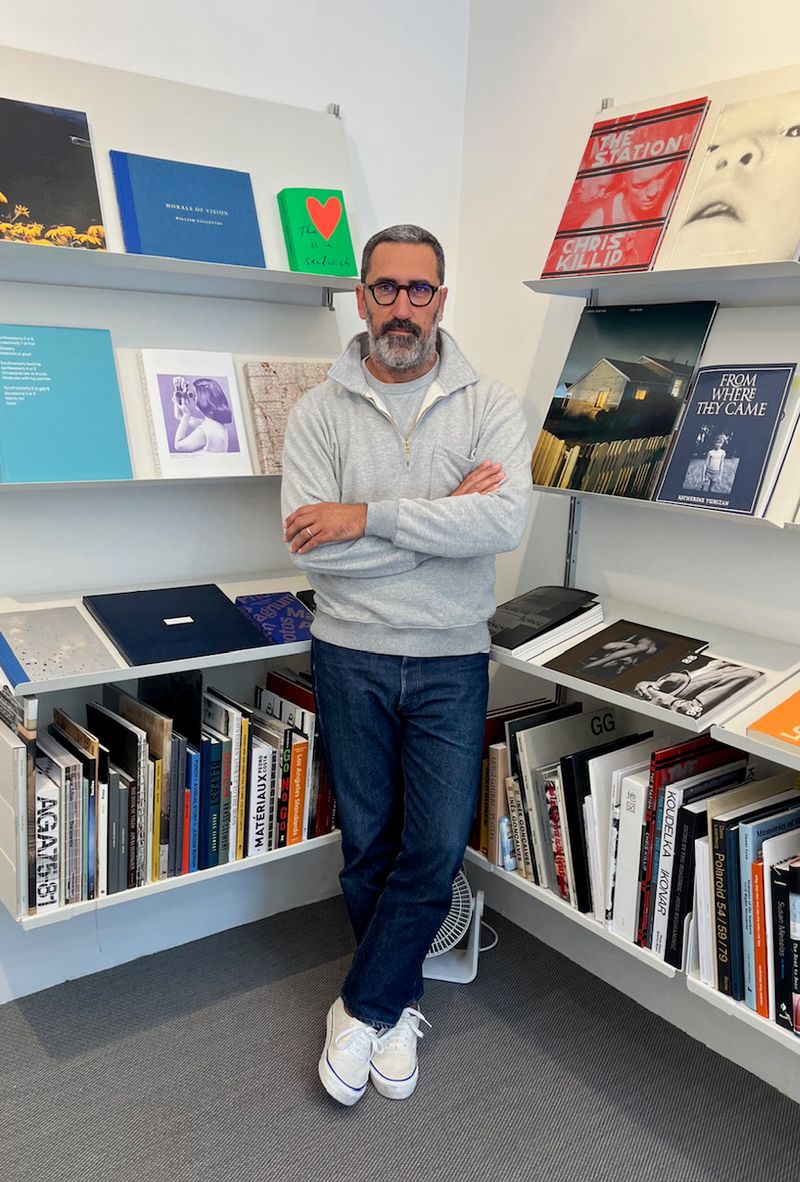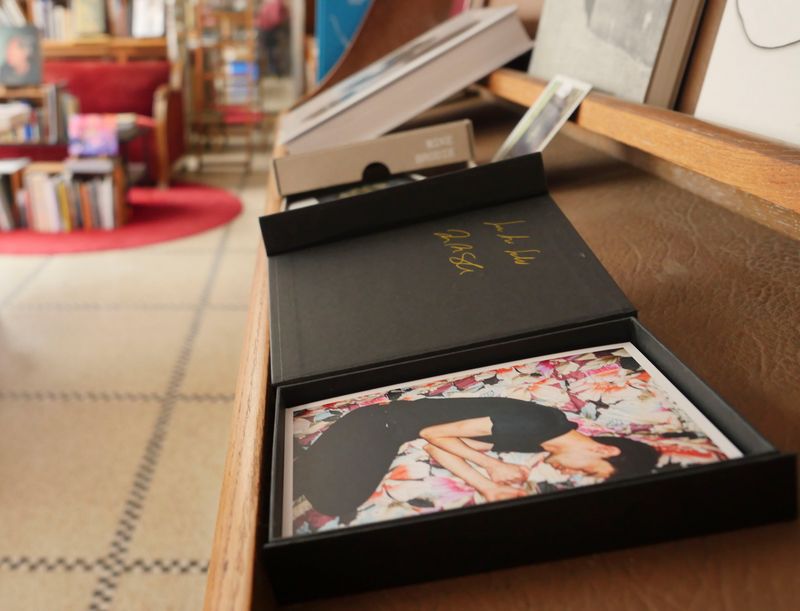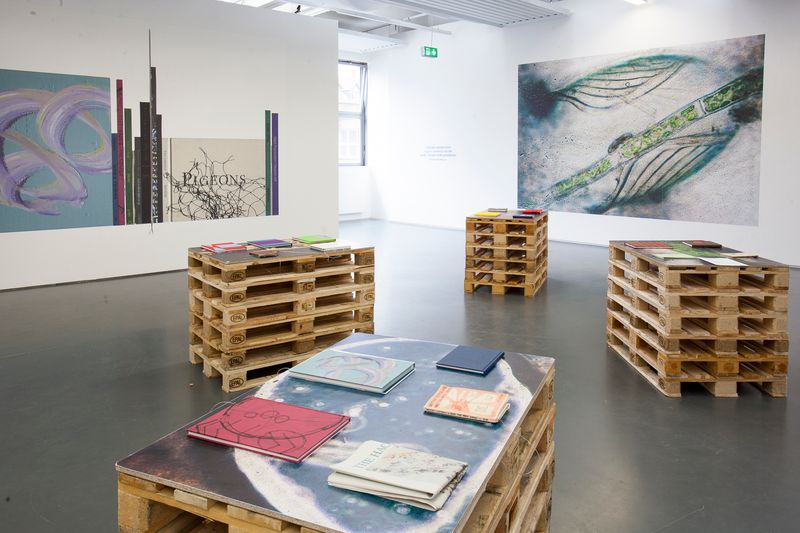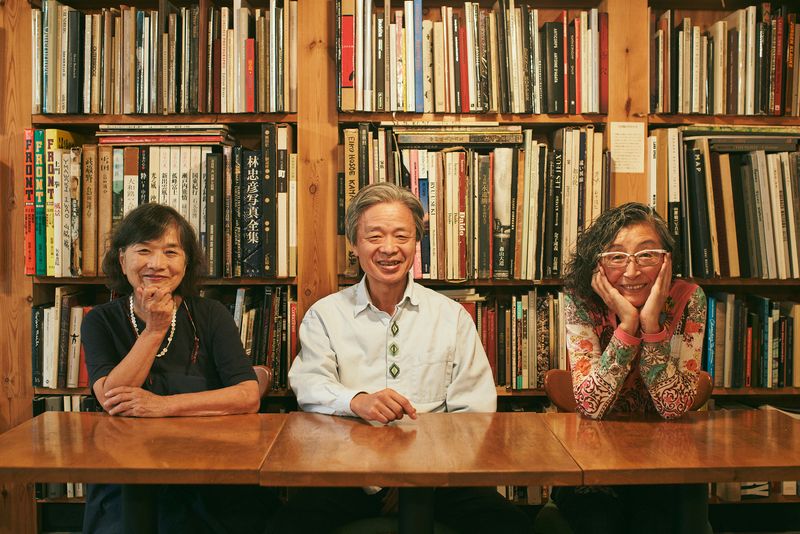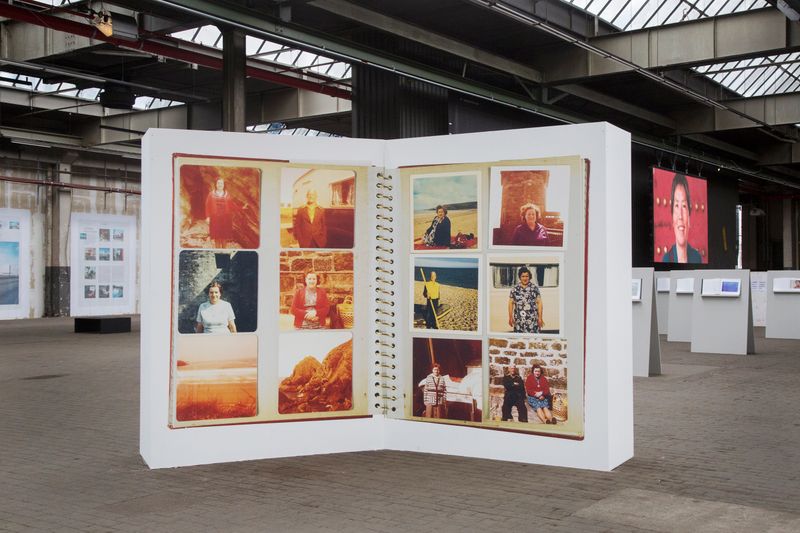From Shelf To Shelf: A Tour Of Photobook Destinations
-
Published23 Apr 2024
-
Author
- Topics Photobooks
Moom, Tipi Bookshop, The PhotoBook Museum, Photo Book Corner, Sugar Paper and Megutama each offer distinctive methods for showcasing and distributing photography through the medium of books.
On World Book Day, we deepened into the practice of six locations that are entirely dedicated to photobooks and their visual narratives. Each destination is capable of weaving photography and communities, having human interaction and tradition at their core.
Moom / Taipei, Taiwan
Nestled in the heart of Taipei, Moom stands as a beacon for photography enthusiasts since its inception in 2016. Specializing in this art form, the store offers a wide selection of new titles and established classics from independent publishers around the world. "In Taiwan, there wasn't a bookstore dedicated to the category of photography. Because of this, a bookstore centered around photography was established, with the aim of allowing more Taiwanese to access photobooks from around the world" said HoTeng, bookshop manager of Moom.
When asked about the curation process for exhibitions and events, HoTeng elucidated the intricacies: "In the past, we would gather books of a specific genre to hold small-scale photobook exhibitions. For instance, Tomorrowland – a show that opened in 2021 – explores the longstanding relationship between humans and nature, bringing together books with similar themes for display. In these exhibitions, we act as conveyors, delivering the themes and concepts that the artists want to express to everyone. We do not add our own viewpoints within the books; instead, we strive to present the artists' perspectives as faithfully as possible." With exhibitions, Moom fosters an environment where artists' perspectives are faithfully showcased.
Furthermore, their tailored selection caters to diverse tastes, with a significant emphasis on Japanese photography to resonate with Taiwanese preferences. "There is a significant interest in Japanese photography among Taiwanese people, and due to our readers' preferences, about half of Moom's selection comprises Japanese photobooks. This has made Moom a unique bookstore, housing books from China, Japan, Europe, and the Americas. We aim to choose our books in a diversified manner, without specifically favoring any category." This eclectic approach ensures Moom remains a meeting point for photography enthusiasts, embracing cultures from across the globe while staying true to its Taiwanese roots.
Tipi Bookshop / Brussels, Belgium
Located in Saint-Gilles, Tipi Bookshop specializes in self-published photography books and international indie publishing imprints. Its founder Andrea Copetti explains the purpose of the opening was the lack of creativity in his local area: "This was the main reason that pushed me to help young artists working within the book field and who were refused by mainstream bookshops. The urge to show, promote, sell, and distribute these artists and their stories was bigger than the necessity to add my photographs to the pile of artists working with photography at that moment."
Since its opening, the store has become a stage for countless stories, not only contained in the pages of the books but also through interactions with customers. "For the last 11 years, so many people made me laugh, and cry that one story would not be enough to give justice to all of them, I believe the intensity I’m after can be found during bookshop hours but also during Photobook fairs, where everyone is vibrating as one heart."
Tipi Bookshop also hosts a wide amount of paper samples that authors can browse for their next project. We asked Andrea if the paper used inside a photobook influences customers' purchasing decisions: "I often say that a book is often read by our hands, the sensuality of the inner specifications of the books are the one of the most present aspects of a story, it’s the skin that invites and protects. Most of our first encounters with books are carried by 3 senses, in this order, touch = hands, sight = eyes, and smell = nose."
The PhotoBook Museum / Cologne, Germany
Founded in 2014 by Frederic Lezmi and Markus Schaden, the PhotoBook Museum aims to develop contemporary photobook culture in various ways and to pay tribute to the medium. "The role and presence of the book in many photographic institutions and museums is usually seen only in the background." Frederic explains that "The PhotoBook Museum, however, places the book at the centre of its museum work. Driven by its founders' long-standing passion for the photobook, the PBM is about focusing on the mediation of the photobook, to find new and innovative ways to display the photobook and to reflect on the relevance of the medium in art and society." The Museum serves as a public platform for collections, exhibitions and events, and is committed to research and education of the medium.
One of the museum's notable features is The Box, a 30m2 showroom located on Cologne's bustling Körnerstrasse as a window on their collection. "The Box is basically where we display things we like and want to share with the public. Books we come across, recently acquired or rediscovered in our photobook collection. Sometimes the focus is on a single book by a single artist: Studio Photo Nationale by Samuel Fosso, One of Yours by Daniel Mayrit or Heroes de Brillo by Federico Estol. Sometimes a whole series of books, like our Book Building show, where Dayanita Singh showed a selection of her books. We have also used The Box as a reading room to showcase our growing collection of photographic novels. As we work at a local level, we always try to showcase interesting examples to introduce the international, very diverse and always surprising world of photobooks to a mostly non-specialist audience. To achieve this, we take care to design exhibitions that are highly visually attractive and focus on experiencing the form and content of the book medium."
Currently, the museum is hosting the Dummy Award shortlist, providing a glimpse into emerging talent in the field of photobook creation. Upcoming exhibitions include publications by Lukas Birk and Carnival Strippers by Susan Meiselas.
Photo Book Corner / Lisbon, Portugal
Founded in 2012, Photo Book Corner recently opened its physical doors in 2020, marking a significant milestone in its journey. Its founder Rui Ribeiral elucidated the aim to give it a new shape: "The need to create a physical space was there from the start, since a book is a physical entity that demands not just emotional but also tactile sensations. However, Photo Book Corner remained an online business for several years due to the fact that the first half of the 'twenty-tens' was marked by intense austerity policies in Portugal following the Great Recession. It just seemed too risky at the time to open a physical shop in Lisbon." Despite the initial hesitations stemming from economic uncertainties, the decision to establish a brick-and-mortar space was driven by a deep-seated belief in the power of tangible experiences. "Everybody knows that the experience of looking at books in a bookshop is entirely different than that of looking at them online. But most importantly, a bookshop is a gathering space that’s conducive to the release and sustenance of creative energies, and that's something that you just don’t get online."
The journey wasn't without its hurdles, particularly amid the backdrop of a global pandemic. "The decision to rent and fully renovate a space for the purpose of selling books that belong to a niche market, during a state of emergency period, sounds not just risky but insane. The truth is you need some risk taking and in(sanity) to run a bookshop" admits Rui. Yet, amidst the chaos, an ethos of embracing serendipity prevailed. Adapting to uncertainty became synonymous with fostering creativity, leading to innovative solutions and new opportunities to adapt to that very delicate period.
Managing the bookshop alone posed its own set of challenges, yet for Rui, it was a journey fueled by passion and independence: "For me in particular, running a bookshop was always a way to get out of the rat race, even though this is not always a quiet and contemplative life." Beyond a deep passion for the photobooks, the role demands a genuine connection with the community, an unwavering commitment to understanding their needs, and a willingness to engage in meaningful discussions. "It’s about reacting to what people need in the moment. I cannot imagine not being in the shop every weekday, and instead relying on someone else to do that part for me. It just makes no sense in my mind. I’ve always been very independent and I guess I’ll die that way."
Sugar Paper / Modena, Italy
Founded by Marcello Coslovi, Alex Tabellini and Mattia Bianco, Sugar Paper is a cultural space dedicated to contemporary photography and photo books. In an era dominated by rapid digital consumption, they believe in the power of the deceleration imposed by the photobook which allows for a deeper discovery and understanding of an artist's thoughts.
"Taking the time necessary to immerse ourselves, page after page, in the thoughts of contemporary artists is very important for us because we are firmly convinced that photography can have a central role not only in promoting a society more aware of its own gaze, but also in making people more responsible and capable of developing a critical consciousness on contemporary issues." Alex and Marcello explained when we asked why open a place dedicated to photography at a time when digital has more and more space. "In this regard and being in Modena, we cannot but quote the words of Luigi Ghirri who defines the photographic book as the best way to present a work: everyone, having it in hand, chooses their own time."
Accessible by appointment and/or during the courses and events that take place within the space, since its opening in October 2023 Sugar Paper has had the honor to host international authors such as Felipe Romero Beltrán, Karolina Wojtas, Peter Pflugler, and Mattia Micheli as well as Taysir Batniji next 6th May. "All the cultural activities - Photobooks for Breakfast, From the Bookshelf and Photobook Presentations with the Authors - revolve around the photobook precisely because we believe it is one of the most effective and complete means not only to delve deeper into a project but also to become the starting point to stimulate reflections and debates on topical issues."
Megutama / Tokyo, Japan
As the world rushes by in a blur of activity and noise, Megutama stands as a testament to the enduring power of simplicity, tradition, and the simple pleasures of life. Megumi Okado, Kotaro Iizawa, and Tokitama believe that the warm and homely atmosphere is created by a combination of several elements. "First of all, I think it's because Megutama is a wooden building. It is a wooden structure called Aero House, designed by Tadashi Murai. Even without pillars, you can create a 6-meter window, creating an open space" says Tokitama, explaining how Yukio Hashimoto's interior design transforms Megutama into a sanctuary of serenity and how this kind of structure evokes a sense of connection with the nature that surrounds them every day. "Around Megutama, there are various trees and plants that are commonly seen in Japanese residential gardens."
With Okado taking the helm in the kitchen and orchestrating a symphony of flavors that embody the essence of home-cooked goodness, Megutama is a sparkling hub of community, creativity, and connection. This essence is encapsulated in their recent slogan, Yu-Raku-Man-Puku, Have fun and fill your belly. "To commemorate our 10th anniversary on February 22nd, 2024, we have published a photo book summarizing the past 10 years of Megutama. Have fun means to do fun things, such as reading photo books, participating in events, and talking with staff and other customers."
Megutama is a place where you can have twice as much fun with home-cooked meals and a never-ending collection of photo books. "All the photo books lined up at Megutama are the personal belongings of photo critic, Kotaro Iizawa. These are photo books created by numerous photographers as a piece of work." Their bookshelf has a wide range of photo books that are not limited by genre. "After all, there are 6,666 books, so there's a lot of variety. I feel like the “anything goes” feel created by the diversity of books is invigorating. "
